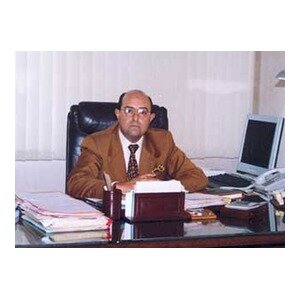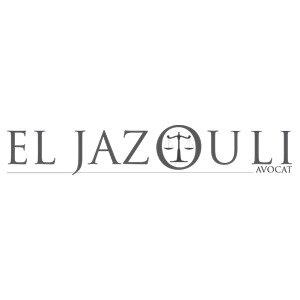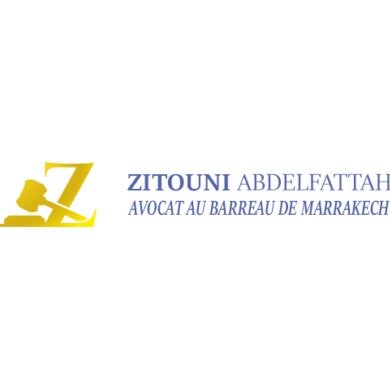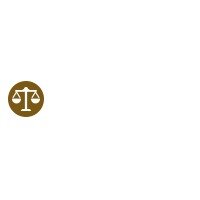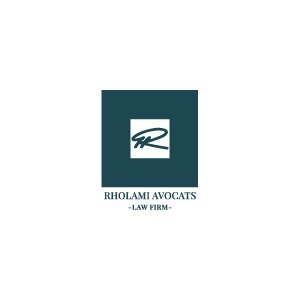Best Mining Law Lawyers in Marrakesh
Share your needs with us, get contacted by law firms.
Free. Takes 2 min.
List of the best lawyers in Marrakesh, Morocco
About Mining Law in Marrakesh, Morocco
Mining Law in Marrakesh, Morocco governs the exploration, extraction, and management of mineral resources in the region. The regulatory framework is primarily defined by national legislation, notably the Moroccan Mining Code, which establishes how mining rights are acquired, obligations of operators, environmental stewardship, and government oversight. The city of Marrakesh, situated in an area with notable mining potential, often sees activities related to minerals such as phosphate, lead, zinc, and precious metals. The law aims to balance economic development with environmental protection and community interests, involving various administrative authorities at the municipal and national levels.
Why You May Need a Lawyer
Individuals and companies involved in any phase of mining in Marrakesh may face complex legal challenges. You may require a lawyer if you are:
- Seeking to acquire licenses or mining permits.
- Negotiating joint ventures with local partners or government entities.
- Addressing environmental compliance requirements.
- Dealing with land access or ownership disputes.
- Facing administrative sanctions or revocations of permits.
- Drafting or reviewing contracts for exploration, extraction, or supply.
- Confronted with community relations or social impact issues.
- Wanting guidance on royalties, taxes, or export procedures.
- Seeking legal strategies for potential litigation regarding mining activities.
- Needing advice on compliance with Moroccan labor or safety regulations.
A lawyer with experience in Mining Law can navigate these areas, ensuring you remain compliant with local and national legislation, avoid costly disputes, and protect your interests.
Local Laws Overview
Mining activities in Marrakesh are governed mainly by the Moroccan Mining Code (Dahir No. 1-60-019 of 16 April 1951, revised by Law 33-13). Key local legal aspects include:
- Licensing: Different stages (prospecting, exploration, exploitation) require specific permits, each with its own conditions and validity periods, typically issued by the Ministry of Energy, Mines, and Environment.
- Land Rights: Possessing a mining title does not always grant land ownership. Rights to access and use land must be negotiated, often involving compensation.
- Environmental Protection: Operators must adhere to environmental impact assessments (EIA) and restoration obligations. Non-compliance can result in fines or permit withdrawal.
- Taxation and Royalties: Morocco imposes royalties and taxes on extracted minerals, and specific rates and exemptions apply based on the resource.
- Health and Safety: The law includes robust requirements for worker safety, training, and reporting of accidents.
- Community Engagement: Consultation with affected communities, as well as respecting indigenous rights, is integral, especially for large-scale projects.
- Dispute Resolution: Conflicts may be addressed via Moroccan civil courts or administrative bodies responsible for mining.
It is crucial to understand how these laws are specifically applied in the region around Marrakesh, as certain local regulations and customary practices may also play a role.
Frequently Asked Questions
What minerals are commonly mined in Marrakesh?
The Marrakesh region is known for mining phosphates, silver, zinc, lead, copper, and other industrial minerals, alongside artisanal extraction of precious stones.
What is the process for obtaining a mining permit?
You must apply through the Ministry of Energy, Mines, and Environment. The process involves submitting technical, financial, and environmental documentation, and permits are typically granted in stages from exploration to exploitation.
Do I need to own land to get a mining license?
No, land ownership is not required, but you need formal authorization to access and use the land, and you may need to compensate local landowners or communities.
What environmental regulations apply?
All sizable mining projects must undergo an environmental impact assessment. Restoration plans and ongoing environmental monitoring are also mandated.
What taxes or royalties must I pay as a mining operator?
Mining operators must pay government royalties on extracted minerals and may be subject to corporate or income taxes on profits, with specific rates set by national law.
How are mining disputes resolved in Marrakesh?
Disputes may be settled through administrative channels or the civil courts, depending on the nature of the issue. Arbitration can be an option if agreed upon by the parties.
Are foreign investors allowed to participate in mining?
Yes, foreign investors are encouraged. They must comply with the same licensing requirements as Moroccan companies, with certain protections under investment agreements.
What are the key obligations of mining companies towards local communities?
Companies must consult with affected communities, offer fair compensation, support local development plans, and ensure that operations minimize adverse social impacts.
How long are mining licenses valid for?
Validity varies: exploration permits are typically valid for up to three years, with possible extensions, while exploitation licenses are granted for up to ten years and can be renewed if conditions are met.
What legal risks should I be aware of in Marrakesh?
Risks include permit revocation for non-compliance, fines for environmental breaches, disputes with local communities, and liabilities from workplace incidents.
Additional Resources
- Ministry of Energy, Mines, and Environment - Main licensing authority for mining activities
- Marrakesh Regional Investment Center (CRI) - Provides guidance on local administrative requirements and investment support
- Moroccan Mining Federation - Industry organization for networking and policy updates
- National Office of Hydrocarbons and Mines (ONHYM) - Source of geological data and state mining projects
- Local law firms specializing in mining, environmental, and land law
- Marrakesh Chamber of Commerce, Industry and Services - Business support including in the mining sector
- Moroccan Bar Association - Directory for legal professionals in Mining Law
Next Steps
If you need legal assistance in Mining Law in Marrakesh, Morocco, follow these steps:
- Define your specific legal question or issue clearly before seeking advice.
- Gather all relevant documentation, such as contracts, permits, or official correspondence.
- Reach out to a reputable law firm or legal advisor with specialized expertise in Moroccan Mining Law, preferably with experience in the Marrakesh region.
- Inquire about the lawyer's experience, fee structure, and recommended approach for your situation.
- Consider consulting government resources or industry organizations for additional guidance or referrals.
- Maintain clear records of all communications and agreements as your legal issue progresses.
Starting with qualified legal support will help you navigate the regulatory complexities, minimize risks, and safeguard your mining interests in Marrakesh.
Lawzana helps you find the best lawyers and law firms in Marrakesh through a curated and pre-screened list of qualified legal professionals. Our platform offers rankings and detailed profiles of attorneys and law firms, allowing you to compare based on practice areas, including Mining Law, experience, and client feedback.
Each profile includes a description of the firm's areas of practice, client reviews, team members and partners, year of establishment, spoken languages, office locations, contact information, social media presence, and any published articles or resources. Most firms on our platform speak English and are experienced in both local and international legal matters.
Get a quote from top-rated law firms in Marrakesh, Morocco — quickly, securely, and without unnecessary hassle.
Disclaimer:
The information provided on this page is for general informational purposes only and does not constitute legal advice. While we strive to ensure the accuracy and relevance of the content, legal information may change over time, and interpretations of the law can vary. You should always consult with a qualified legal professional for advice specific to your situation.
We disclaim all liability for actions taken or not taken based on the content of this page. If you believe any information is incorrect or outdated, please contact us, and we will review and update it where appropriate.





